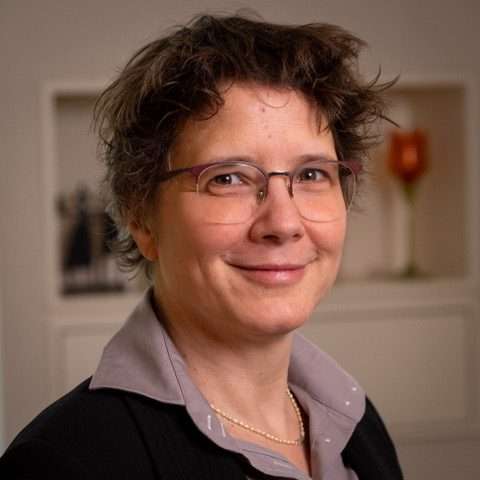
Vonneke Beeker
Vonneke Beeker is a Solution Focused process supervisor, coach and mediator. She works with Ilfaro and focusses on facilitating conversations to help people find more oxygen within their collaborations. She studied dramaturgy at the University of Amsterdam and has a background in public and non for profit management.
Staging the imagination, a 'dramatic' approach to SF. How theatreprinciples help to understand our work.
We are customed to believe that change happens when we effectively do something about the situation we are confronted with. That’s why we tend to look for next steps and solutions that will fix the old problems we are facing. Solution Focus however takes a different route to change. Instead of following the classic cause-effect logic, we rely on the power of imagination to make change flow more naturally.
Often however, SF is still used as a problem solving tool: helping clients to focus on what’s wanted and figure out what steps they need to take in order to climb that stairway to heaven.
To fully embrace the power of SF, we need to step out of our dominant cause-effect logic and step into the wonderful world of imagination, where miracles do happen.
In this session we want to link SF to some powerful philosophical concepts from Aristotle’s Poetics. In this work he analyses how art works through imitation and differentiation (mimesis) and how a certain quality of representation (enargeia) can transform the spectator (katharsis).
In a SF conversation we invite our clients to transpose themselves in different, more resilient versions of themselves (mimesis) as we ask them to create vivid (enargetic) memories of their future perfect and their past successes. Thus creating a state of transformation (katharsis) just by means of our conversations.
Zooming out from our SF conversations - yet staying in the theatrical context - we will going look at the staging of our practice. In theatre, the dramaturg is that person who makes sure that what is being said on stage is enhanced by the elements around it. The setting, the tone of voice, the attitude and body language and all other scenic elements like props, light and music, all contribute to the quality of the (verbal)action on the scene. So, suppose we are looking like dramaturgists at our work, what could we do on that level to enhance the quality of our work even more?
Format: Presentation
Level: Intermediate/Advanced
Maximum number of attendees: 45

